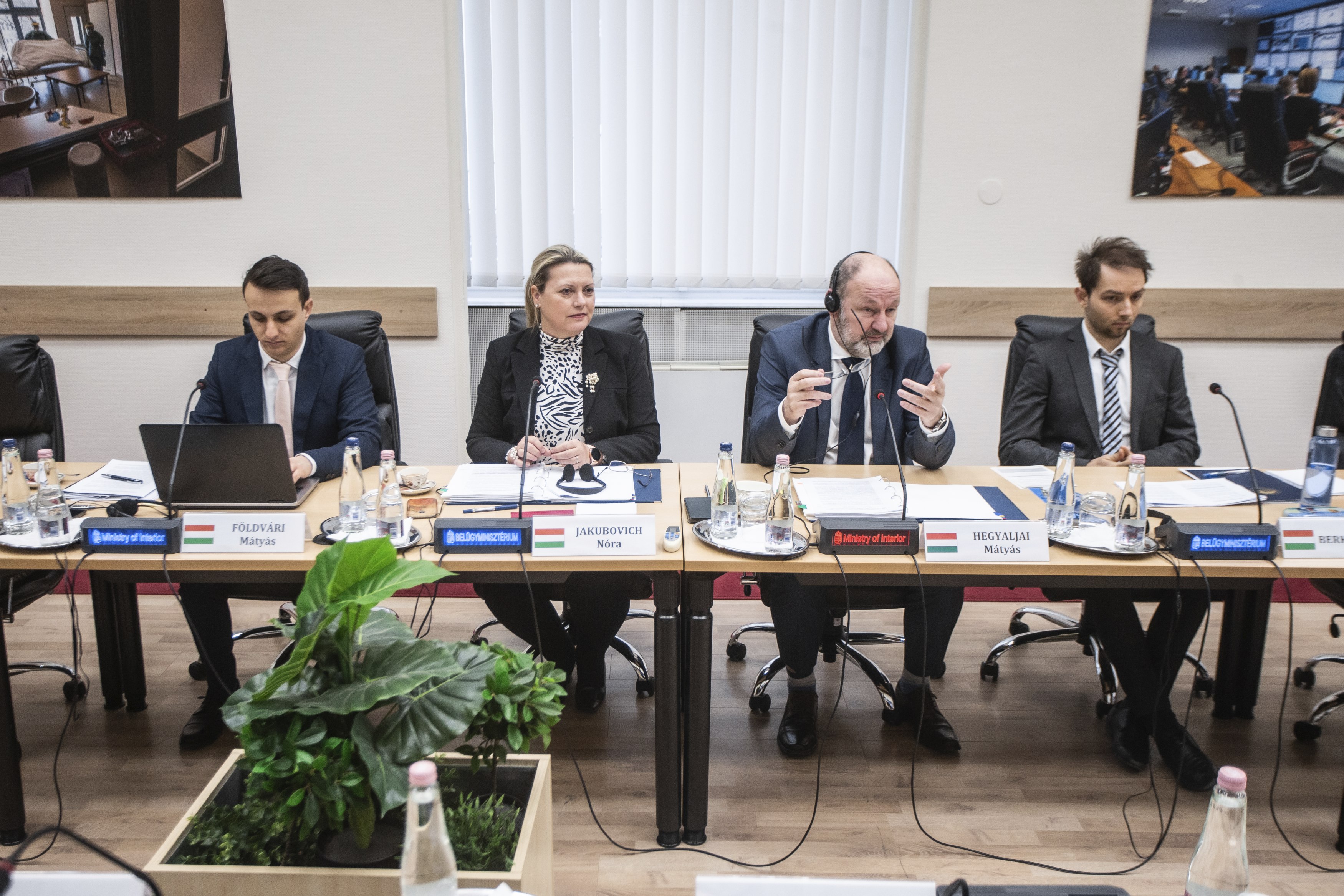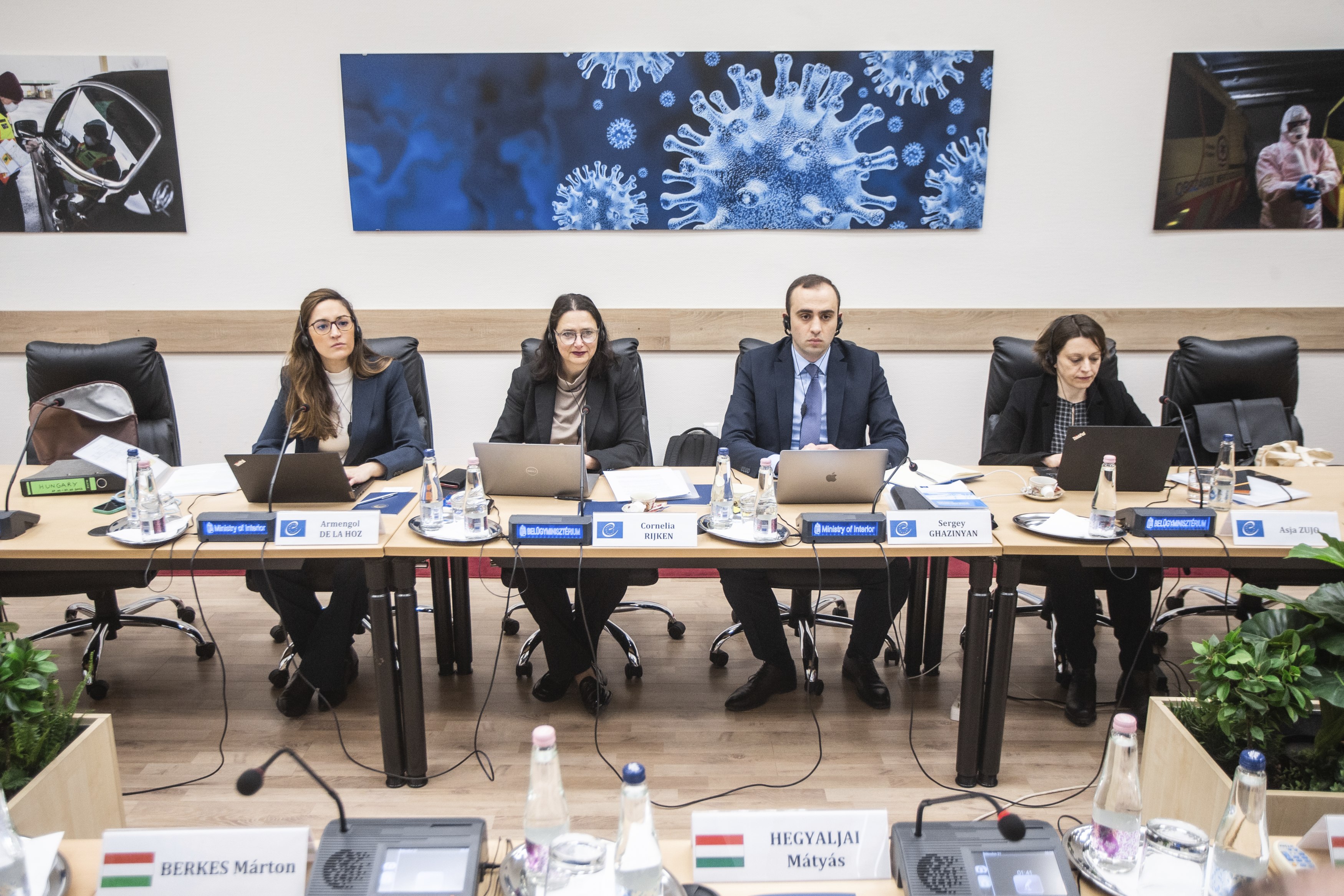For the third time, the Council of Europe's Group of Experts on Action against Trafficking in Human Beings (GRETA) will pay an assessment visit to Hungary between 27 February and 3 March. The delegation aims to evaluate the implementation of the Council of Europe Convention on Action against Trafficking in Human Beings.
In accordance with the rules of procedure, GRETA's visit was preceded by the completion of a questionnaire. Now, GRETA focuses on the access to justice and effective remedies for victims of trafficking in human beings in the third evaluation round of the Convention.
On behalf of the Ministry of Interior, Dr. Mátyás Hegyaljai, Deputy State Secretary for EU and International Relations, National Anti-Trafficking Coordinator, received the experts who held consultations with representatives of authorities, institutions and NGOs competent in the fight against trafficking in human beings in the framework of the evaluation visit. The delegation will also visit Győr to have consultations with local authorities.
During the visit, the Deputy State Secretary stressed the commitment of the Hungarian Government to the fight against trafficking in human beings, which can be underlined by several positive developments in recent years. He reported on the achievements of the National Anti-Trafficking Strategy 2020-2023, such as the change in the legislation to declare minors offering sexual services as suspected victims of trafficking and the introduction of a new management mechanism (general protection measure) to ensure their long-term placement and therapy in specialised children's homes. In the context of the legislative changes, he underlined that the criminal offences of trafficking in human beings and forced labour in the Criminal Code have been brought fully in line with international standards.

The delegation was able to learn about the operation of Victim Support Centres, as important components of victim protection in the country, which now provides support services in 11 locations thanks to its continuous development. A national network is planned to be established by 2025.
During the meetings, the delegation was introduced to the service based on the Barnahus model, which is available in Hungary from 2021, and which aims to provide crisis intervention, medical and health expert examination and police interviews for sexually abused children in one place and at the same time, protecting them from the traumatizing effects of multiple testimonies.

GRETA will prepare a draft report on Hungary after its visit. Its final version is expected to be available in late 2023 or early 2024.
For more information on the Council of Europe's fight against trafficking in human beings, please visit the following website:
